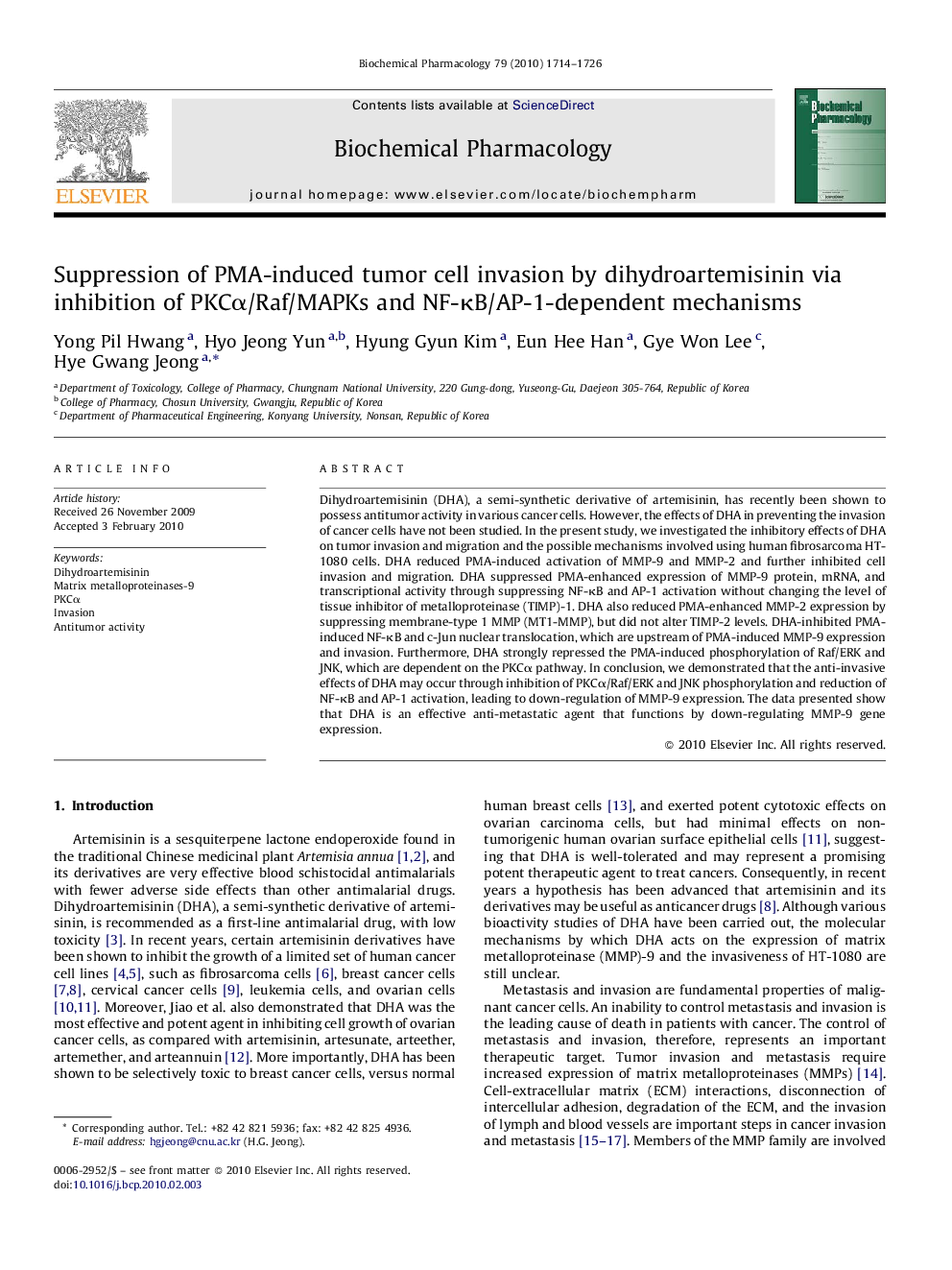| Article ID | Journal | Published Year | Pages | File Type |
|---|---|---|---|---|
| 2513553 | Biochemical Pharmacology | 2010 | 13 Pages |
Dihydroartemisinin (DHA), a semi-synthetic derivative of artemisinin, has recently been shown to possess antitumor activity in various cancer cells. However, the effects of DHA in preventing the invasion of cancer cells have not been studied. In the present study, we investigated the inhibitory effects of DHA on tumor invasion and migration and the possible mechanisms involved using human fibrosarcoma HT-1080 cells. DHA reduced PMA-induced activation of MMP-9 and MMP-2 and further inhibited cell invasion and migration. DHA suppressed PMA-enhanced expression of MMP-9 protein, mRNA, and transcriptional activity through suppressing NF-κB and AP-1 activation without changing the level of tissue inhibitor of metalloproteinase (TIMP)-1. DHA also reduced PMA-enhanced MMP-2 expression by suppressing membrane-type 1 MMP (MT1-MMP), but did not alter TIMP-2 levels. DHA-inhibited PMA-induced NF-κB and c-Jun nuclear translocation, which are upstream of PMA-induced MMP-9 expression and invasion. Furthermore, DHA strongly repressed the PMA-induced phosphorylation of Raf/ERK and JNK, which are dependent on the PKCα pathway. In conclusion, we demonstrated that the anti-invasive effects of DHA may occur through inhibition of PKCα/Raf/ERK and JNK phosphorylation and reduction of NF-κB and AP-1 activation, leading to down-regulation of MMP-9 expression. The data presented show that DHA is an effective anti-metastatic agent that functions by down-regulating MMP-9 gene expression.
Graphical abstractProposed signal transduction pathways by which PMA induced and DHA-inhibited invasion and migration of HT-1080 cells.Figure optionsDownload full-size imageDownload as PowerPoint slide
